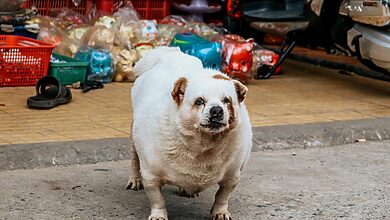Royal Canin Kitten Food: Stop Tummy Troubles in 7 Easy Steps!
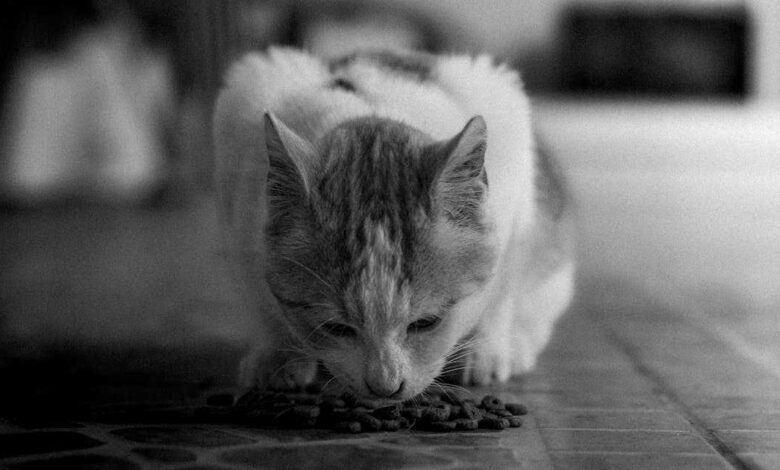
Ensuring your kitten’s healthy growth and development is a top priority for any pet owner. One of the most critical aspects of kitten care is nutrition. Royal Canin kitten food offers a range of products designed to meet the unique nutritional needs of growing kittens. In this comprehensive guide, we will explore how to stop tummy troubles in your kitten with Royal Canin kitten food in seven easy steps.
Step 1: Choose the Right Royal Canin Kitten Food
Choosing the right food for your kitten is the first and most crucial step. Royal Canin offers both dry and wet food options, each formulated to support healthy development and address specific dietary needs.
Royal Canin Kitten Dry Food
Royal Canin kitten dry food is designed to provide balanced nutrition that supports healthy growth and development. The kibble size and texture are perfect for small mouths, making it easier for kittens to chew and digest.
- Royal Canin Kitten Dry Food: This formula is packed with essential nutrients, including proteins, vitamins, and minerals that promote healthy growth and development. It also contains highly digestible proteins and prebiotics to support digestive health.
- Benefits: Supports digestive health, boosts the immune system, promotes healthy weight gain, and supports dental health. The balanced nutritional profile ensures that kittens receive all the essential nutrients they need for optimal growth.
For more information on Royal Canin kitten dry food, visit Royal Canin.
Royal Canin Kitten Wet Food
Wet food is an excellent option for kittens who may have difficulty chewing dry kibble or those who require additional hydration. Royal Canin kitten wet food is formulated to be highly palatable and easy to digest.
- Royal Canin Kitten Wet Food: This formula provides a balanced diet that supports overall health and wellness. It includes a blend of proteins, fats, and carbohydrates, along with essential vitamins and minerals.
- Benefits: Enhances hydration, supports digestive health, and is highly palatable for picky eaters. The added moisture in wet food can help prevent urinary tract issues and ensure proper hydration.
For more information on Royal Canin kitten wet food, visit Royal Canin.
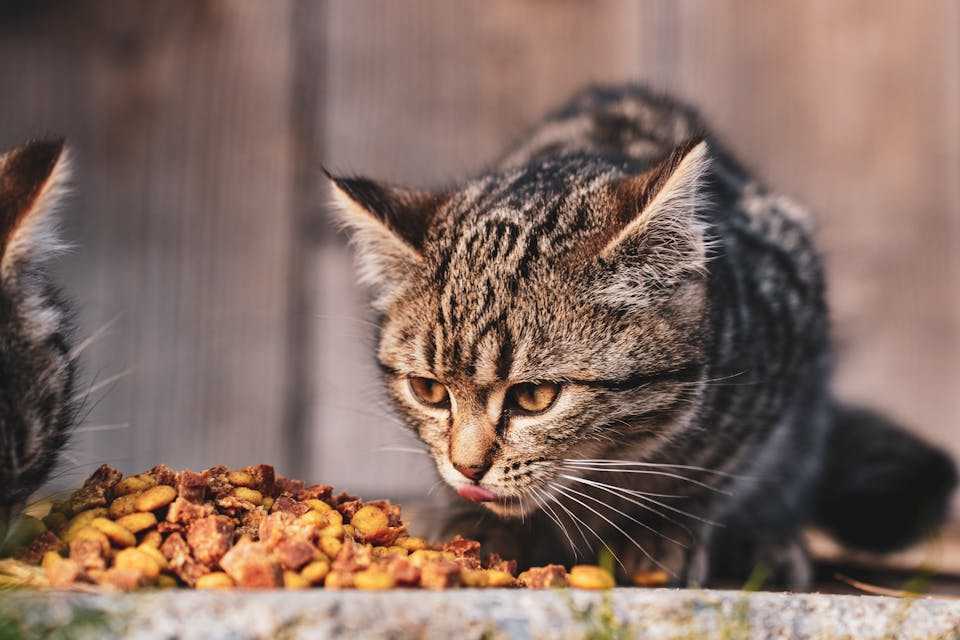
Royal Canin Mother & Babycat Food
For very young kittens or those transitioning from mother’s milk, Royal Canin Mother & Babycat food is an ideal choice. This formula is designed to support both the mother and her kittens during the weaning process.
- Royal Canin Mother & Babycat: This formula supports digestive health and provides essential nutrients for growth. It contains a blend of antioxidants, vitamins, and prebiotics to support immune system development.
- Benefits: Supports immune system development, promotes healthy digestion, and provides high energy content for growing kittens. The soft texture is easy for kittens to chew and swallow, making the transition to solid food smoother.
For more information on Royal Canin Mother & Babycat food, visit Royal Canin.
Kitten Food for Sensitive Stomachs
If your kitten has a sensitive stomach, Royal Canin offers specialized formulas that can help alleviate digestive issues.
- Royal Canin Kitten Food for Sensitive Stomachs: This formula is designed to be gentle on the digestive system while providing complete nutrition.
- Benefits: Eases digestive discomfort, promotes healthy stool quality, and supports overall digestive health.
For more information on Royal Canin kitten food for sensitive stomachs, visit Royal Canin.
Kitten Food for All Breeds
Royal Canin provides kitten food that caters to all breeds, ensuring that every kitten gets the nutrition they need for optimal growth and development.
- Royal Canin Kitten Food for All Breeds: This formula supports the unique nutritional needs of kittens of all breeds.
- Benefits: Balanced nutrition, supports healthy growth, and promotes overall wellness.
For more information on Royal Canin kitten food for all breeds, visit Royal Canin.
Step 2: Follow the Royal Canin Kitten Feeding Chart
Proper feeding practices are essential to prevent tummy troubles and ensure your kitten’s healthy development. The Royal Canin kitten feeding chart provides guidelines on how much to feed your kitten based on their age, weight, and activity level.
Royal Canin Kitten Feeding Chart
The Royal Canin kitten feeding chart helps you determine the appropriate amount of food for your kitten at different stages of growth. This chart is a valuable tool for ensuring your kitten receives the right amount of nutrients.
- Newborn to 4 Months: During this stage, kittens are rapidly growing and require frequent, small meals. Follow the feeding chart to ensure they receive adequate nutrition.
- 4 to 12 Months: As your kitten continues to grow, their nutritional needs will change. Adjust the feeding amounts according to the chart to maintain healthy weight gain.
For the complete Royal Canin kitten feeding chart, visit Royal Canin.
How Much to Feed a Kitten
Knowing how much to feed your kitten can prevent overfeeding or underfeeding, both of which can lead to digestive issues. The Royal Canin feeding chart provides clear guidelines, but here are some general tips:
- Weigh Your Kitten Regularly: Keep track of your kitten’s weight to ensure they are growing at a healthy rate.
- Adjust Portions as Needed: Depending on your kitten’s activity level and growth, you may need to adjust the feeding portions.
For more tips on how much to feed a kitten, visit ASPCA.
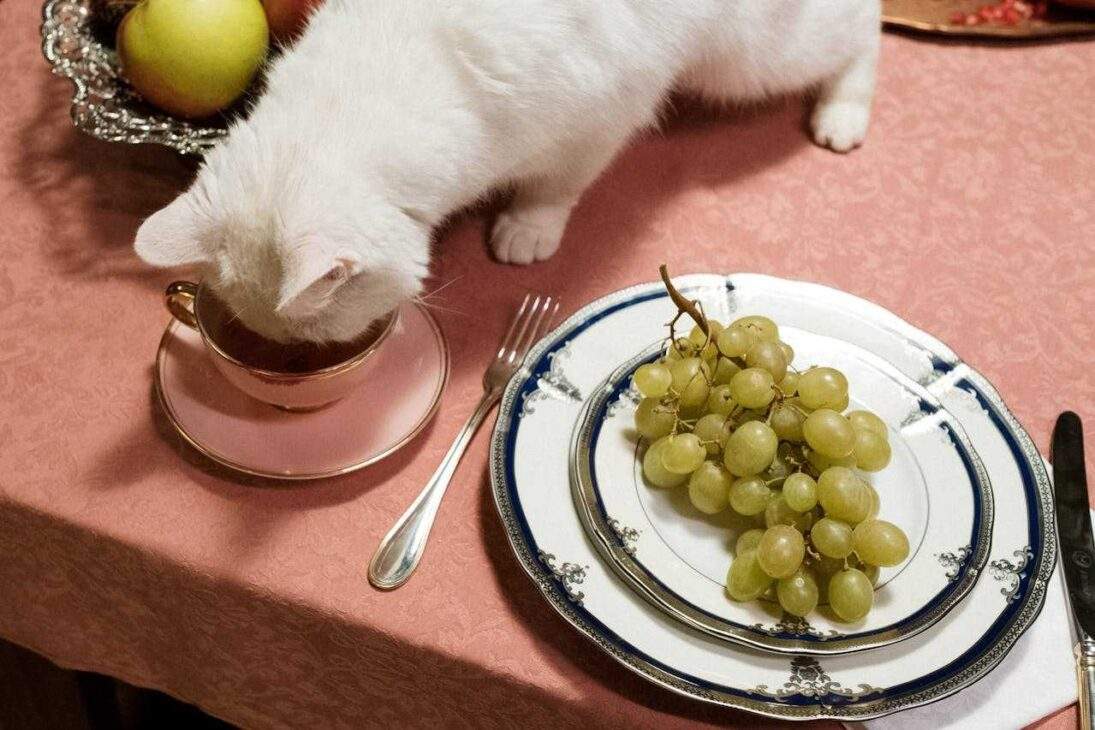
Kitten Nutrition Guide
Understanding the nutritional needs of kittens is essential for their health and development. Kittens require a diet that is rich in proteins, fats, vitamins, and minerals.
- Proteins: Essential for muscle growth and overall development.
- Fats: Provide energy and support healthy skin and coat.
- Vitamins and Minerals: Support immune function, bone health, and overall wellness.
For a comprehensive kitten nutrition guide, visit VCA Hospitals.
Step 3: Introduce New Foods Gradually
When introducing new foods to your kitten, it’s important to do so gradually to avoid upsetting their digestive system. Sudden changes in diet can cause tummy troubles, including diarrhea and vomiting.
Gradual Transition Process
Follow these steps for a smooth transition:
- Day 1-2: Mix 25% new food with 75% old food.
- Day 3-4: Mix 50% new food with 50% old food.
- Day 5-6: Mix 75% new food with 25% old food.
- Day 7: Feed 100% new food.
For more information on introducing new foods, visit PetMD.
Monitor Your Kitten’s Reaction
Pay close attention to how your kitten reacts to the new food. Look for signs of digestive discomfort, such as vomiting, diarrhea, or changes in appetite. If you notice any issues, slow down the transition process.
Step 4: Provide Fresh Water at All Times
Hydration is crucial for your kitten’s overall health and digestion. Ensure your kitten has access to fresh, clean water at all times.
Importance of Hydration
Proper hydration aids in digestion, nutrient absorption, and overall bodily functions. Kittens, especially those on a dry food diet, need plenty of water to stay healthy.
Encouraging Water Intake
- Use a Pet Fountain: Pet fountains provide a continuous flow of fresh water, encouraging kittens to drink more.
- Multiple Water Bowls: Place water bowls in different areas of your home to ensure easy access.
For more tips on keeping your kitten hydrated, visit ASPCA.
Step 5: Maintain a Clean Feeding Area
A clean feeding area is essential to prevent tummy troubles caused by bacteria and contaminants.
Cleaning Tips
- Wash Bowls Daily: Clean food and water bowls daily with hot, soapy water.
- Sanitize Feeding Area: Regularly sanitize the area where your kitten eats to prevent the buildup of germs and bacteria.
For more information on maintaining a clean feeding area, visit PetMD.
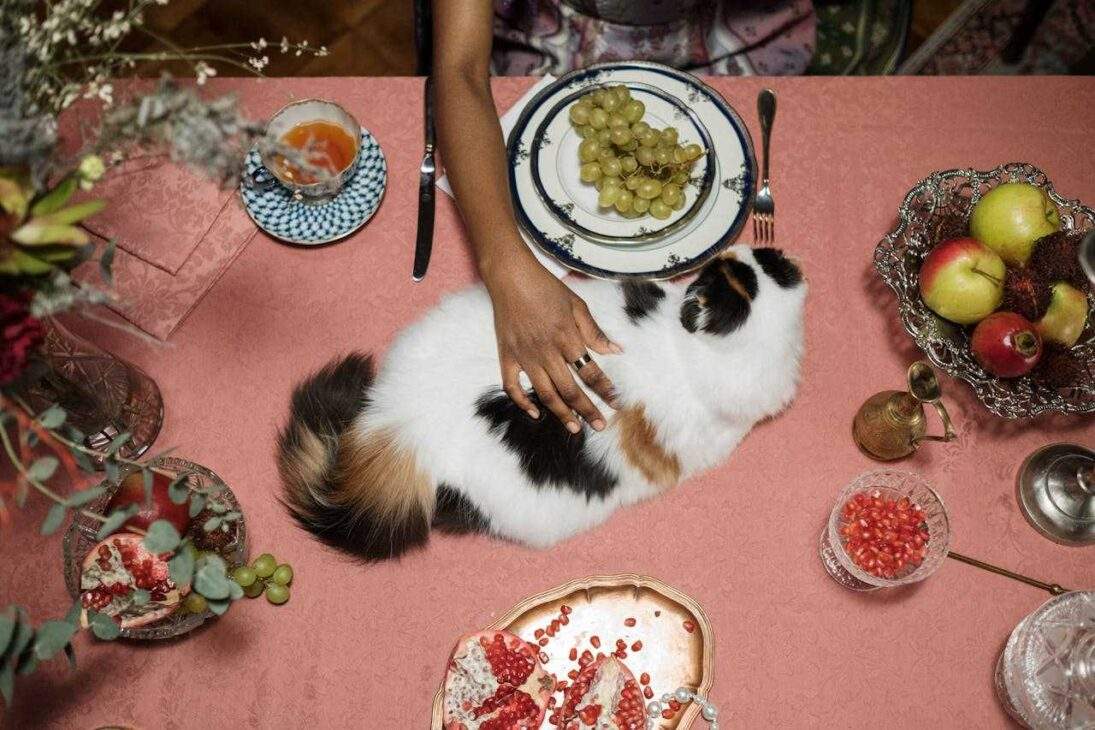
Step 6: Monitor Your Kitten’s Health and Wellness
Regular monitoring of your kitten’s health and wellness is crucial to prevent and address any tummy troubles. This includes keeping an eye on their weight, digestive health, and overall development.
Kitten Health and Wellness
Ensuring your kitten’s health and wellness involves more than just proper nutrition. Regular veterinary check-ups, vaccinations, and a healthy living environment are all critical components.
- Veterinary Check-Ups: Regular visits to the vet can help detect and address any health issues early on.
- Vaccinations: Keep your kitten up-to-date with vaccinations to protect them from common diseases.
- Living Environment: Provide a clean and safe environment for your kitten to thrive.
For more information on kitten health and wellness, visit PetMD.
Kitten Weight Gain
Monitoring your kitten’s weight is essential to
ensure they are growing at a healthy rate. Sudden weight loss or gain can be a sign of underlying health issues.
- Regular Weigh-Ins: Weigh your kitten regularly and keep a record of their weight.
- Healthy Weight Range: Consult your veterinarian to determine the healthy weight range for your kitten.
For tips on monitoring kitten weight gain, visit VCA Hospitals.
Kitten Digestive Health
Maintaining your kitten’s digestive health is key to preventing tummy troubles. This includes providing a balanced diet, proper feeding practices, and monitoring for any signs of digestive issues.
- Signs of Digestive Issues: Vomiting, diarrhea, and changes in appetite can indicate digestive problems.
- Preventive Measures: Feed a balanced diet, avoid sudden changes in food, and ensure proper hydration.
For more information on kitten digestive health, visit PetMD.
Kitten Immune System Support
A strong immune system is essential for your kitten’s overall health and ability to fight off infections. Royal Canin kitten food is formulated to support immune system development.
- Immune-Boosting Nutrients: Vitamins E and C, antioxidants, and prebiotics support a healthy immune system.
- Healthy Environment: Minimize stress and provide a clean living space to support immune health.
For more tips on supporting your kitten’s immune system, visit PetMD.
Kitten Dental Care
Dental health is an important aspect of overall wellness. Proper dental care can prevent dental diseases and promote overall health.
- Dental Chews: Provide dental chews to help keep your kitten’s teeth clean.
- Regular Brushing: Brush your kitten’s teeth regularly with a cat-friendly toothbrush and toothpaste.
For more tips on kitten dental care, visit VCA Hospitals.
Kitten Hairball Control
Hairballs can be a common issue for kittens, especially as they begin to groom themselves. Proper nutrition and grooming can help prevent hairballs.
- High-Fiber Diet: A diet high in fiber can help prevent hairballs by promoting healthy digestion.
- Regular Grooming: Brush your kitten regularly to reduce the amount of hair they ingest.
For more information on hairball control, visit PetMD.
Kitten Litter Box Training
Proper litter box training is essential for both your kitten’s health and your home’s cleanliness. Consistent training and a clean litter box can prevent accidents and promote good habits.
- Choose the Right Litter Box: Select a litter box that is easy for your kitten to access and clean.
- Consistent Training: Place your kitten in the litter box after meals and naps to establish good habits.
For more tips on litter box training, visit ASPCA.
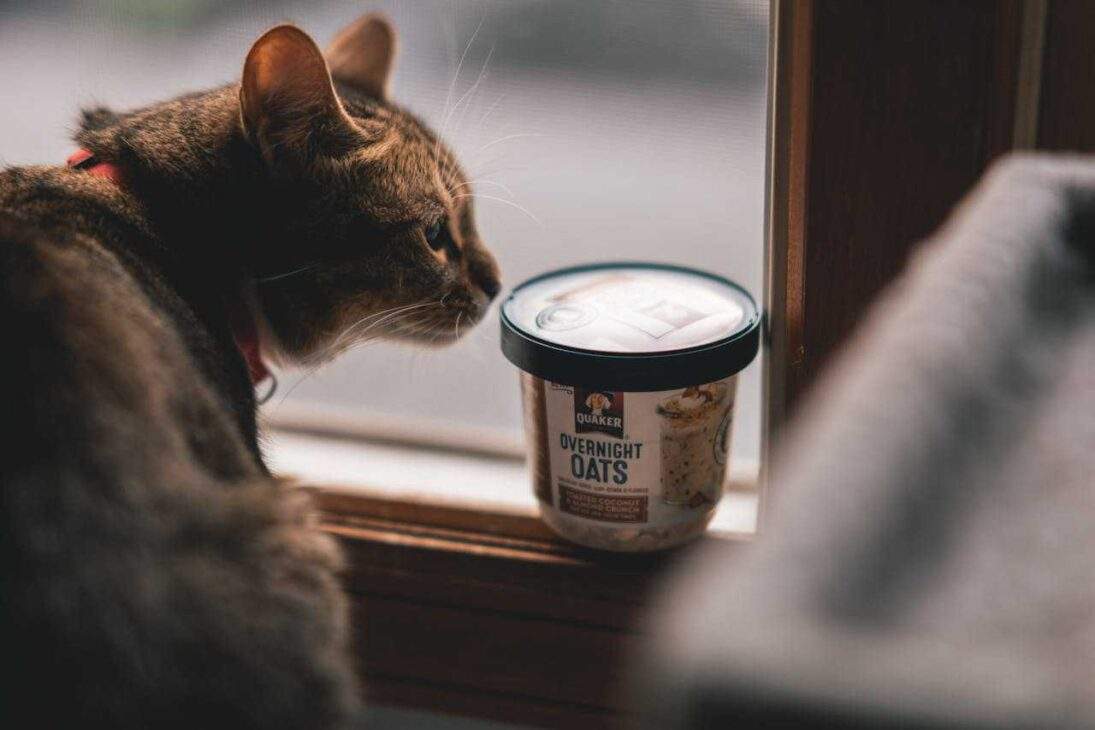
Step 7: Provide Enrichment and Stress Reduction
Enrichment and stress reduction play significant roles in maintaining your kitten’s digestive health. Stress can lead to digestive issues, so it’s essential to create a calm and stimulating environment.
Enrichment Activities
- Interactive Toys: Provide toys that stimulate your kitten’s mind and body.
- Playtime: Engage in regular playtime to keep your kitten active and happy.
Reducing Stress
- Calm Environment: Create a calm environment with plenty of hiding spots and quiet areas.
- Routine: Maintain a consistent routine to help your kitten feel secure.
For more tips on providing enrichment and reducing stress, visit ASPCA.
Where to Buy Royal Canin Kitten Food
Finding a reliable source to purchase Royal Canin kitten food ensures you always have access to the best nutrition for your kitten. Here are some options:
- Pet Stores: Most pet stores carry Royal Canin kitten food. Check your local stores or chains like PetSmart and Petco.
- Online Retailers: Websites like Amazon, Chewy, and the Royal Canin official website offer a wide range of Royal Canin products.
- Veterinary Offices: Many veterinary offices also carry Royal Canin products, especially specialized formulas.
For a comprehensive list of where to buy Royal Canin kitten food, visit Royal Canin.
Royal Canin Kitten Reviews
Reading reviews from other pet owners can provide valuable insights into the effectiveness and palatability of Royal Canin kitten food. Here are some places to find reviews:
- Amazon: Check customer reviews on Amazon for honest feedback from other pet owners.
- Chewy: Chewy’s website offers detailed reviews and ratings from customers.
- PetSmart and Petco: Both retailers feature customer reviews on their websites.
For detailed reviews, visit Chewy.
Royal Canin Kitten Food
By following these seven easy steps—choosing the right Royal Canin kitten food, following the feeding chart, and monitoring your kitten’s health and wellness—you can ensure that your kitten grows up healthy and free from tummy troubles. Providing your kitten with the best nutrition and care will set the foundation for a happy, healthy life.
FAQ
1. What makes Royal Canin kitten food different from other brands?
Royal Canin kitten food is formulated with specific nutritional profiles tailored to meet the unique needs of growing kittens. It includes highly digestible proteins, essential vitamins, and minerals that support healthy development and digestive health.
2. How do I know which Royal Canin formula is right for my kitten?
Choosing the right formula depends on your kitten’s age, breed, and specific dietary needs. Consult your veterinarian or refer to Royal Canin’s product descriptions to find the best match.
3. Can I mix Royal Canin dry and wet food for my kitten?
Yes, mixing dry and wet food can provide balanced nutrition and enhance palatability. Ensure you follow the recommended feeding guidelines to avoid overfeeding.
4. How often should I feed my kitten?
Kittens typically need to be fed multiple small meals throughout the day. Follow the Royal Canin feeding chart or consult your veterinarian for specific recommendations.
5. What should I do if my kitten has digestive issues after eating?
If your kitten experiences digestive issues, such as vomiting or diarrhea, consult your veterinarian. It may be necessary to adjust their diet or transition to a sensitive stomach formula.
6. How can I ensure my kitten stays hydrated?
Ensure your kitten has access to fresh, clean water at all times. Consider using a pet fountain to encourage drinking, especially if your kitten is on a dry food diet.
7. What are the benefits of Royal Canin Mother & Babycat food?
Royal Canin Mother & Babycat food supports both the mother and her kittens during the weaning process. It provides essential nutrients for growth, immune system development, and digestive health.
8. How do I transition my kitten to Royal Canin food?
Gradually introduce Royal Canin food by mixing it with the current food over 7 days. Start with 25% new food and 75% old food, and gradually increase the new food percentage.
9. Where can I buy Royal Canin kitten food?
Royal Canin kitten food is available at pet stores, online retailers like Amazon and Chewy, and veterinary offices. For a comprehensive list, visit Royal Canin.
10. How important is regular veterinary care for my kitten?
Regular veterinary care is essential for monitoring your kitten’s health, preventing diseases, and addressing any health concerns early. Schedule regular check-ups and keep up with vaccinations.





